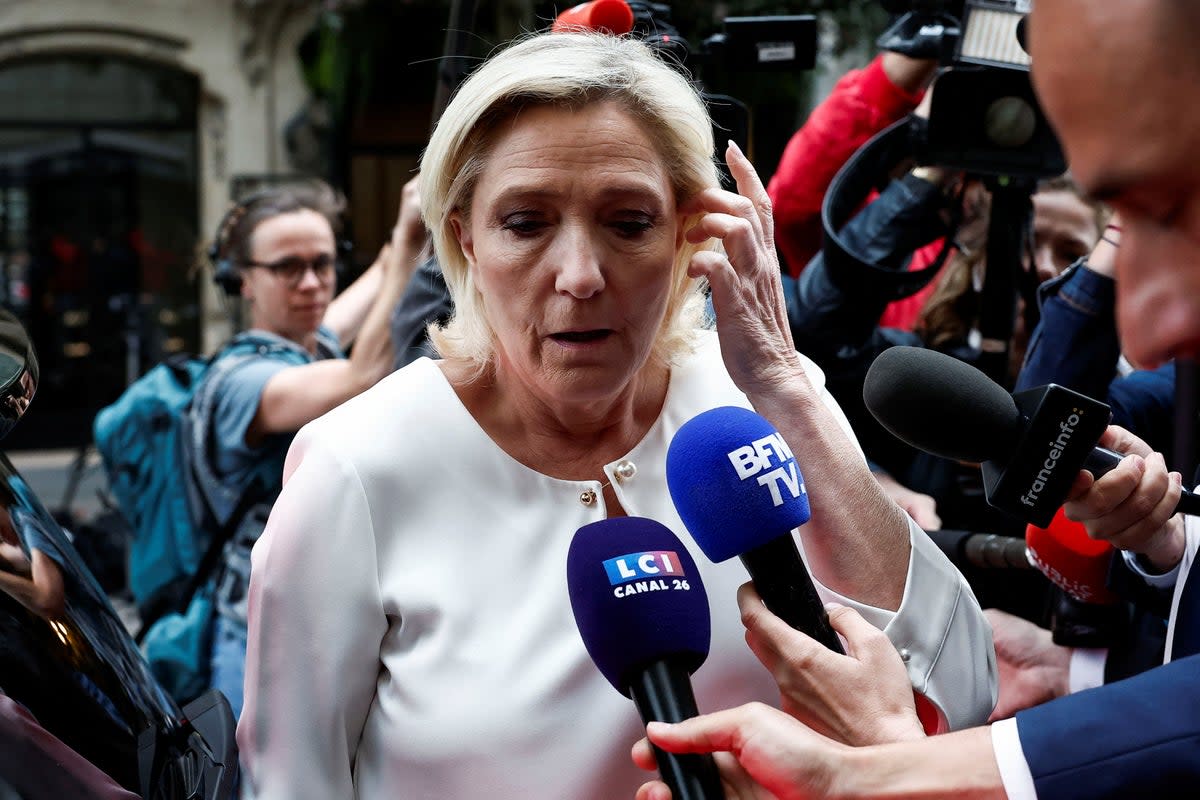French prosecutors investigate alleged ‘illegal financing’ by Marine Le Pen and far-Right National Rally party

French criminal prosecutors have opened an investigation into ‘illegal financing’ by Marine Le Pen and her far-Right National Rally party.
It followed them being beaten into third place in parliamentary elections held over the weekend.
Judicial sources in Paris on Tuesday confirmed that the new criminal enquiry related to Ms Le Pen’s attempt to become President of France in 2022.
“A judicial investigation was opened after a report to the courts from the National Commission for Campaign Accounts and Political Financing,” said one.
The enquiry is believed to be related to the RN (for Rassemblement National – French for National Rally) allegedly stealing taxpayer-generated funds from the European Parliament.
Ms Le Pen is already facing up to 10 years in prison and a ban on standing for elected office if she is found guilty following an embezzlement trial which opens in Paris in September.
They say there is compelling evidence that the 55-year-old illegally accessed some €620,000 (£513,000) on behalf of her party.
Ms Le Pen will appear in the dock with 12 other members of the RN, which was previously called the National Front.
On hearing about the trial last September, Ms Le Pen accused the judiciary of acting in a manner that was ‘above all political’.
She added: ‘We will present our arguments before the court on their merits.’ All those implicated deny any wrongdoing.
Ms Le Pen’s own father, Jean-Marine Le Pen, the 95-year-old founder of the FN, was also on the defendant sheet, but last week it was ruled that he was ‘unfit to stand trial,’ because of his age.
Embezzlement is a crime punishable in France by ‘up to 10 years in prison’, and penalties also available to judges include fines equivalent to around £1million.
In the Le Pen case, prosecutors are seeking ‘the additional penalty of deprivation of the right to be elected, for a maximum period of five years,’ said a source close to the case.
Ms Le Pen is currently an MP, so if she were to be convicted following trial, she would be ruled out of the 2027 presidential election, despite styling herself as a future president.
The investigation into RN fraud began in March 2015, when the European Parliament announced that it had referred possible irregularities to the EU anti-fraud office.
It mainly concerned salaries paid to parliamentary assistants, and even to Ms Le Pen’s bodyguard.
Ms Le Pen is accused of personally diverting some £114,00 (€137,000) of EU funds taken illegally during her time as an MEP, between 2004 and 2017, into party coffers.
This effectively means that the party was using EU money for its own business in Paris, rather than for work in Brussels.
Ms Le Pen was runner up to Emmanuel Macron in the race to become president of France in 2022, after a similar result in 2017.
Party founder Jean-Marie Le Pen in turn came second to Jacques Chirac in the presidential election of 2002.
Mr Le Pen has already been convicted in a criminal court, notably for spreading racial hatred, for Holocaust denial, and for other anti-Semitic crimes.
Before Sunday night, the RN was confidently predicting that it would win a majority in the National Assembly in Paris, and go on to form the next government.
Ms Le Pen said she was waiting to become president in 2027, while her protégé, 28-year-old Jordan Bardella, would become prime minister.
But the election was won by the New Popular Front – an alliance of Leftist and centrist parties created to block the RN – with Mr Macron’s Rennaissance / Together alliance coming second.
No party got an overall majority, meaning a hung parliament and political deadlock.


